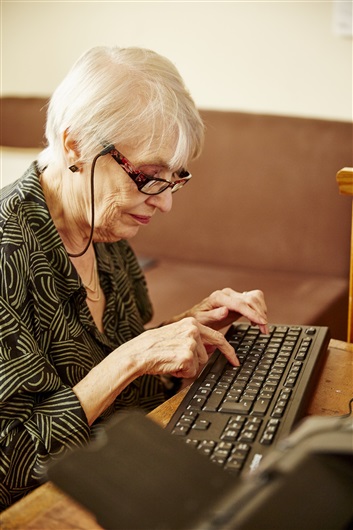Today’s blog is a guest post from Edward Wallace, Information Specialist in Macmillan’s Support Line Services. In the blog, he talks about finding reliable and helpful health information online.
 For many of us, the easiest and quickest way to find answers to our questions is to search on the internet, whether we want to know how to lose weight, how to kiss, or how to tie a tie (just 3 of the 100 most frequent ‘how to’ searches on Google in 2017).
For many of us, the easiest and quickest way to find answers to our questions is to search on the internet, whether we want to know how to lose weight, how to kiss, or how to tie a tie (just 3 of the 100 most frequent ‘how to’ searches on Google in 2017).
It is the same for questions we have about our health, including concerns about cancer. This is whether we are affected as a patient or loved one, or whether something we have read in the newspaper or heard on television has caused us to worry. The most commonly Googled health question in 2017 was ‘what is cancer?’. If you typed this question into Google, how many results do you think you would get? Staggeringly - more than 20 million!
And this is the dilemma. There is plenty of reliable, high-quality information about cancer on the internet but there is also much that is inaccurate, misleading, confusing, and potentially dangerous. Cancer information on the internet can come from many different sources – expert health organisations and government agencies, members of the general public and even scam artists looking to make money from people’s worry. Anyone can post information about cancer online.
So, what is the best way to have confidence about cancer information? Following these three simple rules can help you find reliable information:
Rule 1: Avoid 'Dr Google'
According to Google, 5% of all searches are health-related. Although Google is a very useful tool, the problem is that it searches everything on the internet. This means that, unless you are familiar with the source of the information, you have no way of knowing if it is reliable. Reading misleading information about cancer online can cause unnecessary anxiety. There is even a term to describe this - ‘cyberchondria’.
Rule 2: Use social media carefully
Social media sites (such as Facebook and Twitter) are good ways to stay connected. However, when you're seeking medical information, only follow social media from reputable sources. Many trusted organisations have social media accounts that you can follow, for example Macmillan’s Facebook and Cancer Information Twitter pages.
Rule 3: Search for information that is produced in the UK and has achieved the Information Standard
Although there are many reputable non-UK sources of cancer information for the public, it is best to start your search for information produced by UK organisations. The main reason for this is that information produced by non-UK organisations may be inappropriate or misleading for people affected by cancer living in the UK – for example because of differences in healthcare systems and availability of treatments between the UK and other countries.
The Information Standard is a certification scheme for health and social care information that Macmillan adheres to. It has been set up by the Department of Health to help people make informed choices about their lifestyle, illness, treatment and care. About 50,000 organisations produce health and social care information for the public in England and some people can feel overwhelmed by the volume of material and be unsure what to trust. The Information Standard helps people know what information is high-quality and trustworthy.
Members of The Information Standard can display the logo on their information. This acts as a quality mark and helps people easily identify reliable, high quality information. You will see this mark on Macmillan’s information materials, and on the information pages on our website:
To gain certification, an organisation must demonstrate that the processes it uses to produce its information are robust and result in material that is accurate, accessible, impartial, balanced, based on evidence and well-written.
You can read a full list of organisations which have achieved Information Standard certification, or are currently undergoing certification.
We hope you found this post helpful and interesting. The next two guest posts from me will also be related to finding high-quality and reputable information on the internet. Keep an eye out for them!
To see what else Macmillan's cancer information team has been blogging about, please visit our blog home page! You can subscribe to receive our blogs by email or RSS too.
We're with you every step of the way
The Macmillan team is here to help. Our cancer support specialists can answer your questions, offer support, or simply listen if you need a chat. Call us free on 0808 808 00 00.
Comments? Feel free to add them below (you need to be logged in).
Keep in touch Follow Macmillan’s cancer information team on Twitter @mac_cancerinfo
Whatever cancer throws your way, we’re right there with you.
We’re here to provide physical, financial and emotional support.
© Macmillan Cancer Support 2026 © Macmillan Cancer Support, registered charity in England and Wales (261017), Scotland (SC039907) and the Isle of Man (604). Also operating in Northern Ireland. A company limited by guarantee, registered in England and Wales company number 2400969. Isle of Man company number 4694F. Registered office: 3rd Floor, Bronze Building, The Forge, 105 Sumner Street, London, SE1 9HZ. VAT no: 668265007